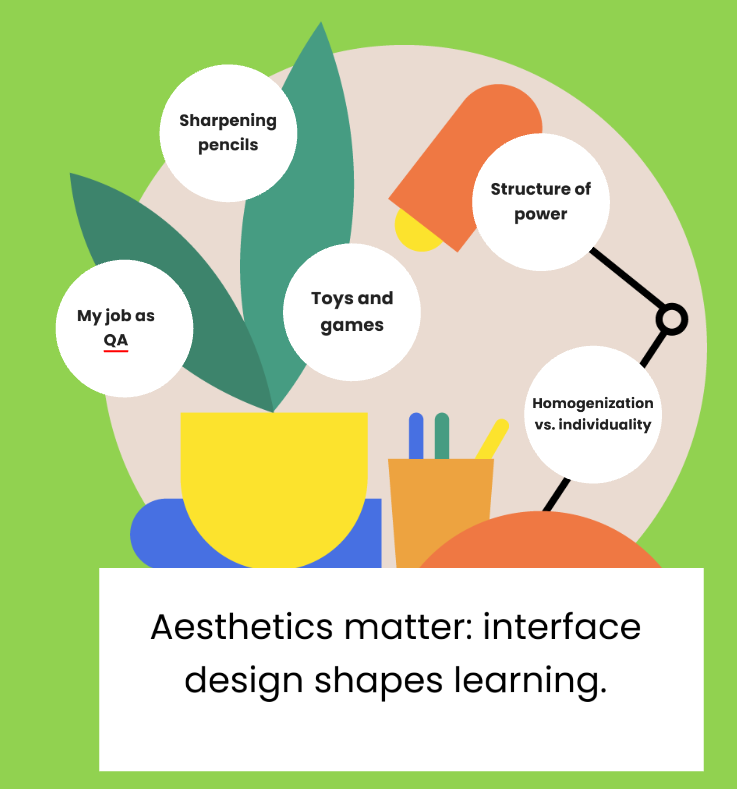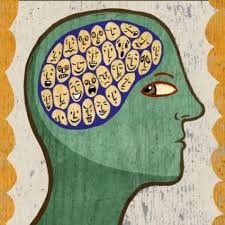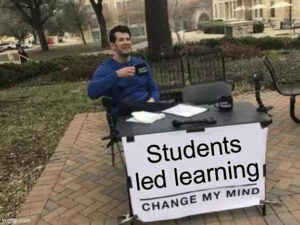The article focuses in the essentialism and the instrumentalism as the main factors that prevent online education research from asking relevant questions than enable the core changes expected when digital networks emerged.
The article offers an introduction to those concepts and what is their approach to online education. Essentialism understand technology as a independent abstract subject with pedagogical value itself, while instrumentalism is presented as a bunch of tools which humans can operate in order to satisfy particular needs.
The article is very consistent in presenting essentialism and instrumentalism as the two main factors that limit the research in online education. Overall, the critique is well supported. They use previous articles that give credibility to their arguments, as well as using examples that facilitate the compensation of their claims. The examples are very good to illustrate the constructivist view in particular. These mundane examples helped me to understand the theory and principals behind.
When the authors present the main limitations of essentialism and instrumentalism, I expected a clearer critique of why these perspectives not offer the opportunity to grow in online education research. I would like to have more examples of why and how they are limiting the research and maybe more references that support and shows those constraints. Instead, I found a short description of how essentialism and instrumentalism understand new technologies, and the main focus was in how it is important to introduce a constructivist perspective.
I appreciate the fact the article presents clear reasons and arguments to introduce a constructivist view. This is something that I agree with the authors. However, I would like to know some benefits of the essentialism and instrumentalism. I believe that research in these perspective offers some opportunities of learning and answer interesting questions. In my opinion, the article has a very negative view towards both ideas. Even the article does not give much credit, I think I have learned that essentialism and instrumentalism perspective also need to be taken in account, and essentially understand when someone is basing their arguments from those perspectives.
As we have been seeing, the article focuses in essentialism and instrumentalism as main reasons why research has been prevented to develop. Reading the paper I wondered about other possible reasons, such as lack of technical knowledge on the part of the educational community. Can educational research formulates good question about technical/design aspects of the digital networks without coding or programming skills?
I have to admit that it has been a challenge and a difficult paper to read. I think that the language used and the structure does not facilitate the full understanding of the arguments. It took me several readings to capture the main points and understand all the elements presented. I found the article very condense and trying to explore so many factors. I got interested in some aspects that I would like to dig in, as the bias in the design and their consequences. On the other hand I was surprise that some ideas need to be raised, for example. “First, technical design is undertaken by people who do not leave their connection to the social world behind at the laboratory gates.(Hamilton and Friesen 2013 p.10)”
As a conclusion, I would say that this article offered me to understand that I tend to have a constructivist approach to the online education. I particularly enjoyed reading a similar question I formulated previously in the blog: What kind of future we want?
————
Hamilton, C.E. & Friesen, N. (2013). Online Education: A Science and Technology Studies Perspective. Canadian Journal of Learning and Technology. 39 (2): 1 – 21
Peach, H.G. Jr & Bieber, J.P. (2015). Faculty and Online Education as a Mechanism of Power. Distance Learning.



